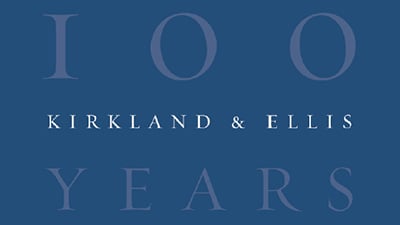Serving clients for more than one hundred years is an achievement for any institution, but especially so for an institution as fragile and idiosyncratic as a law firm. To not only last but thrive, on what is now a global scale, we have relied on our distinct and dynamic culture, recruiting and empowering top talent, encouraging entrepreneurialism, operating ethically, and a sustained record of excellence wherever we practice.
Kirkland’s success today was largely foretold by its auspicious beginnings. Founded in Chicago by Robert “The Colonel” McCormick, Stuart Shepard and S.E. Thomason in 1909, we have handled high-profile, high-stakes matters from the start.
At the beginning of the twentieth century, newspapers were at their zenith in influencing politics, business and culture, and McCormick used the law firm he founded as a key strategic partner in both protecting and advancing the Tribune’s influence throughout the country. Whether it was taking on Henry Ford’s libel suit against the Tribune, fighting Chicago Mayor “Big Bill Thompson” as part of political reform or underwriting the cost of press freedom in the landmark Near v. Minnesota case in the U.S. Supreme Court, our lawyers have delivered outstanding results, under great pressure, time and again.
Colonel McCormick was by far the most well-known member of the Firm’s original partnership. His grandfather, Joseph Medill, was the legendary publisher of the Chicago Tribune and his family was one of Chicago’s most prominent. Less than a year after starting the Firm, McCormick was thrust into an unexpected leading role at the family business. His succession to the editorship effectively ended his legal career though his name remained on the door until 1927.
Overshadowed by his more famous partner, little is known of Stuart Shepard except that he withdrew from the Firm in 1917 to become general counsel of the federal agency that would become the Department of Veterans Affairs. S.E. Thomason would also find success in the newspaper business, first as vice president of the Chicago Tribune, and then as publisher of the rival Chicago Daily Times (today’s Chicago Sun-Times).

